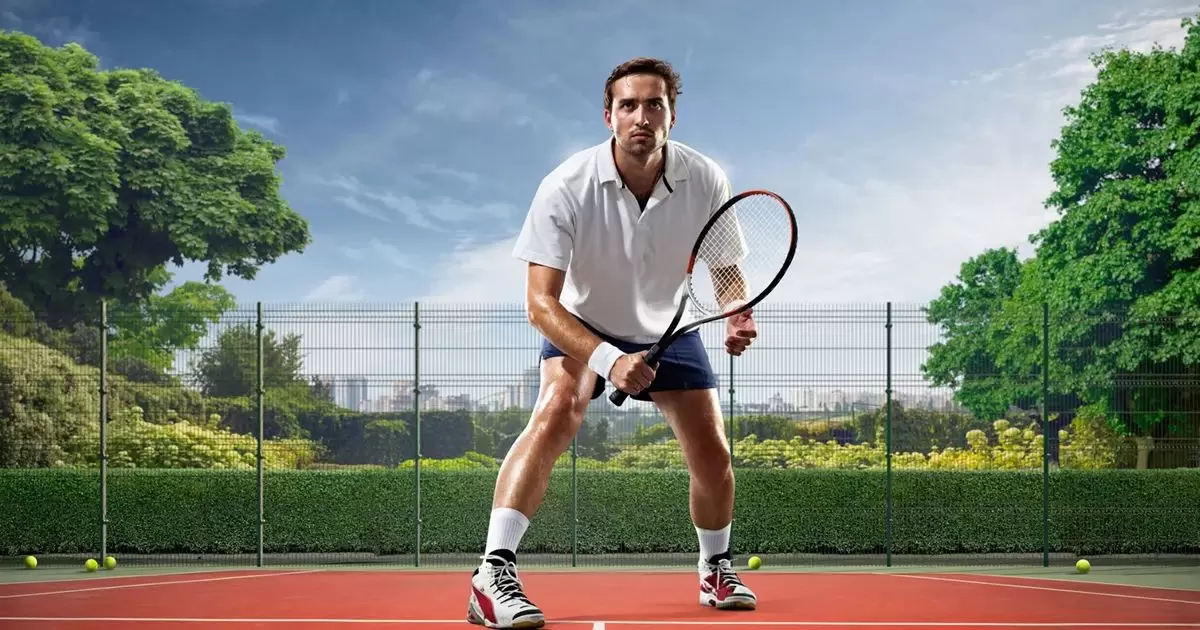The world of sports and athletics is teeming with specialized equipment, and athletes often rely on specific gear to optimize their performance. In the realm of racquet sports, tennis, and basketball are two popular disciplines that demand distinct footwear for optimal performance. While tennis players wear specialized tennis shoes designed to provide stability and grip on the court, some individuals have raised the question: Are basketball shoes good for tennis? This question has sparked an intriguing debate among sports enthusiasts, athletes, and professionals alike. In this comprehensive essay, we will delve into the features and characteristics of basketball shoes and tennis shoes, comparing their design, functionality, and performance benefits. By exploring these aspects, we aim to provide a well-informed answer to the question of whether basketball shoes can be a viable alternative for tennis players.
Table: Features of Basketball Shoes and Tennis Shoes
| Features | Basketball Shoes | Tennis Shoes |
| Sole Design | High-Top or Mid-Top | Low-Top or Mid-Top |
| Outsole Material | Durable, Hard Rubber | Durable, Non-Marking |
| Cushioning | Ample, Impact Protection | Moderate, Lateral Support |
| Traction | Exceptional, Multi-Directional | Superior, Lateral Movement |
| Ankle Support | High, Injury Prevention | Moderate, Flexibility |
| Weight | Heavier | Lighter |
| Court Compatibility | Versatile, Indoor/Outdoor | Specialized, Tennis Court |
| Durability | Moderate | High |
Basketball Shoes vs. Tennis Shoes: A Comparative Analysis
1. Sole Design
Basketball shoes typically come in high-top or mid-top designs, which provide extra ankle support and stability. This is essential in basketball, where abrupt changes in direction and frequent jumps are common. On the other hand, tennis shoes are typically low-top or mid-top, allowing for greater freedom of movement, particularly in lateral motions.
2. Outsole Material
Both basketball and tennis shoes are designed to provide a solid grip, but they use different types of outsole materials to achieve this. Basketball shoes are often equipped with hard rubber outsoles that are durable and suitable for indoor and outdoor courts. Tennis shoes, however, use non-marking outsoles to prevent scuffing and damage to the tennis court.
3. Cushioning
Cushioning in basketball shoes is typically more substantial, designed to absorb the impact from jumping and landing. In contrast, tennis shoes offer moderate cushioning to support lateral movement and quick changes in direction.
4. Traction
Basketball shoes excel in traction, featuring multi-directional patterns that offer excellent grip on the court. This is crucial for basketball players who need to stop, start, and pivot rapidly. Tennis shoes also provide impressive traction, but with a specific focus on lateral movement, as this is a key component of tennis gameplay.
5. Ankle Support
Basketball shoes are known for their high ankle support, which is essential for preventing ankle injuries during intense games. In contrast, tennis shoes provide moderate ankle support while allowing for greater flexibility and agility on the court.
6. Weight
Basketball shoes tend to be heavier due to their added cushioning, ankle support, and structure. In contrast, tennis shoes are lighter to facilitate quick movements and agility during tennis matches.
7. Court Compatibility
Basketball shoes are designed to be versatile, and suitable for both indoor and outdoor courts. Tennis shoes, however, are specialized for tennis courts to ensure optimum performance and prevent damage to the surface.
8. Durability
Tennis shoes are built to withstand the rigors of tennis, offering high durability to cope with the specific demands of the sport. Basketball shoes, while durable, may not be as robust, as they need to cater to a wider range of surfaces and movements.
Pros and Cons of Using Basketball Shoes for Tennis
Pros:
- Ankle Support: Basketball shoes provide superior ankle support, reducing the risk of ankle injuries in tennis.
- Traction: Basketball shoes offer excellent traction, which can benefit players when making quick lateral movements on the court.
- Cushioning: The extra cushioning in basketball shoes can provide enhanced comfort during long matches.
- Versatility: Basketball shoes can be used for both basketball and tennis if you play multiple sports and want to save on buying different shoes.
Cons:
- Weight: The added weight in basketball shoes may hinder agility and quick movements in tennis.
- Durability: Basketball shoes may not be as durable as tennis shoes when used exclusively for tennis.
- Court Compatibility: Basketball shoes may not be ideal for tennis courts, potentially causing damage to the surface.
- Lack of Specialized Features: Basketball shoes lack the specialized features that tennis shoes offer, such as non-marking soles and specific lateral support.
Can Basketball Shoes be a Viable Option for Tennis?

The question of whether basketball shoes can be a viable option for tennis ultimately depends on the individual player’s preferences and playing style. Are Air Max 270 basketball shoes suitable for tennis? While there are pros and cons to using basketball shoes for tennis, it is essential to consider the specific needs and priorities of the player.
When Basketball Shoes Can Be a Viable Option:
- Versatile Athletes: If you are a versatile athlete who engages in both basketball and tennis, using basketball shoes can be a practical choice. It allows you to use a single pair of shoes for multiple sports, reducing the need for multiple footwear investments.
- Ankle Stability: If you have a history of ankle injuries or require additional ankle support, basketball shoes can provide the stability needed to minimize the risk of injury during tennis matches.
- Multi-Court Usage: If you play on a variety of court surfaces, including both indoor and outdoor courts, basketball shoes with their durable outsoles can be a suitable choice.
When Basketball Shoes May Not Be Ideal:
- Agility and Speed: For players who prioritize agility and speed, the added weight of basketball shoes may hinder their performance on the tennis court, where rapid lateral movements are essential.
- Longevity: If you are a dedicated tennis player and want your footwear to last, tennis shoes are likely to offer better durability and longevity, especially when used exclusively for tennis.
- Court Considerations: Using basketball shoes on tennis courts may not be ideal for the courts’ long-term maintenance and may not provide the specialized lateral support needed for tennis-specific movements.
Case Studies: Famous Players’ Footwear Choices
To gain a better understanding of the real-world implications of using basketball shoes for tennis, let’s explore the footwear choices of some famous athletes who have dabbled in both sports.
1. Michael Jordan
As one of the greatest basketball players of all time, Michael Jordan is renowned for his eponymous line of basketball shoes, the Air Jordans. These shoes are specifically designed for basketball, offering exceptional cushioning, ankle support, and traction. While Jordan excelled on the basketball court, he rarely, if ever, used his signature basketball shoes for tennis. The weight and structure of Air Jordans are better suited for basketball’s requirements, making them less than ideal for the agility and quick movements needed in tennis.
2. Andy Murray
On the other hand, we have Andy Murray, a professional tennis player and multiple Grand Slam champion. In a unique scenario, Murray designed his own tennis shoe, the Under Armour AM4, by collaborating with the sportswear brand Under Armour. These shoes were designed to cater specifically to the needs of tennis players, focusing on lateral support, lightweight design, and durability. This collaboration exemplifies the importance of specialized footwear in tennis.
3. Kobe Bryant
Kobe Bryant, a legendary basketball player, used his signature line of basketball shoes, the Nike Kobe series, throughout his illustrious career. Similar to Michael Jordan, Kobe’s basketball shoes were tailored to meet the demands of the basketball court. He did not use them for tennis, as they were not optimized for the lateral movements and surface compatibility that tennis requires.
Tips for Using Basketball Shoes in Tennis
If you choose to use basketball shoes for tennis, there are some tips to consider to optimize your performance and minimize potential drawbacks:
- Select Low-Top or Mid-Top Styles: Opt for low-top or mid-top basketball shoes rather than high-top models. These styles provide more freedom of movement for your ankles.
- Choose Lightweight Models: Look for lightweight basketball shoes that are not overly cumbersome. Lighter models can help mitigate the added weight concern.
- Use on Multi-Surface Courts: If you play on various court surfaces, basketball shoes with durable outsoles can be a practical choice.
- Rotate Footwear: Consider rotating your basketball shoes with specialized tennis shoes to extend the longevity of both pairs and tailor your footwear to the specific sport.
- Invest in Orthotics: If you have specific foot conditions or require additional arch support, custom orthotics can be inserted into basketball shoes to enhance comfort and performance.
Conclusion
In the debate of whether basketball shoes are good for tennis, the answer is not a simple yes or no. It depends on various factors, including individual player preferences, playing style, and the specific circumstances in which the shoes will be used. Basketball shoes offer benefits such as ankle support, traction, and cushioning that can be advantageous for some tennis players. However, the added weight, potential durability issues, and court compatibility concerns may make basketball shoes less ideal for others.
Ultimately, the choice of footwear for tennis should align with the player’s needs and priorities. Players who frequently switch between basketball and tennis or require extra ankle support may find basketball shoes to be a practical option. However, dedicated tennis players who prioritize agility, speed, and longevity should invest in specialized tennis shoes designed to meet the unique demands of the sport. When making this decision, it is crucial to consider the player’s comfort, safety, and overall performance on the tennis court. As sports continue to evolve and footwear technology advances, athletes have more choices than ever to tailor their equipment to their unique needs and aspirations.



